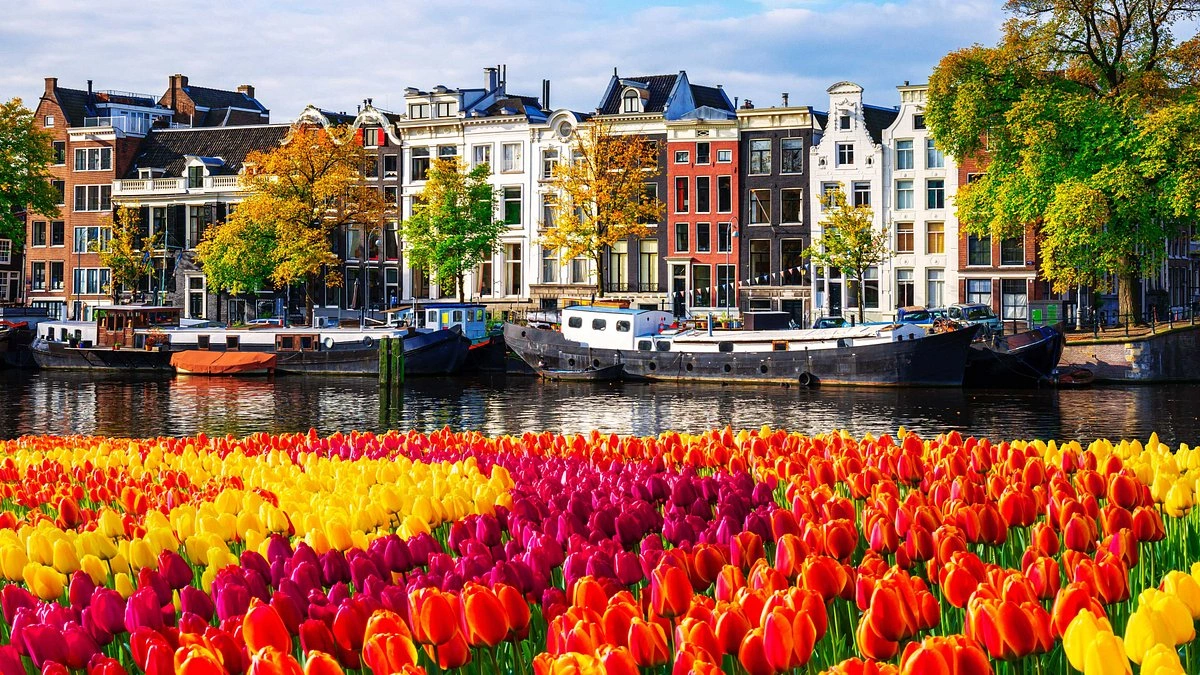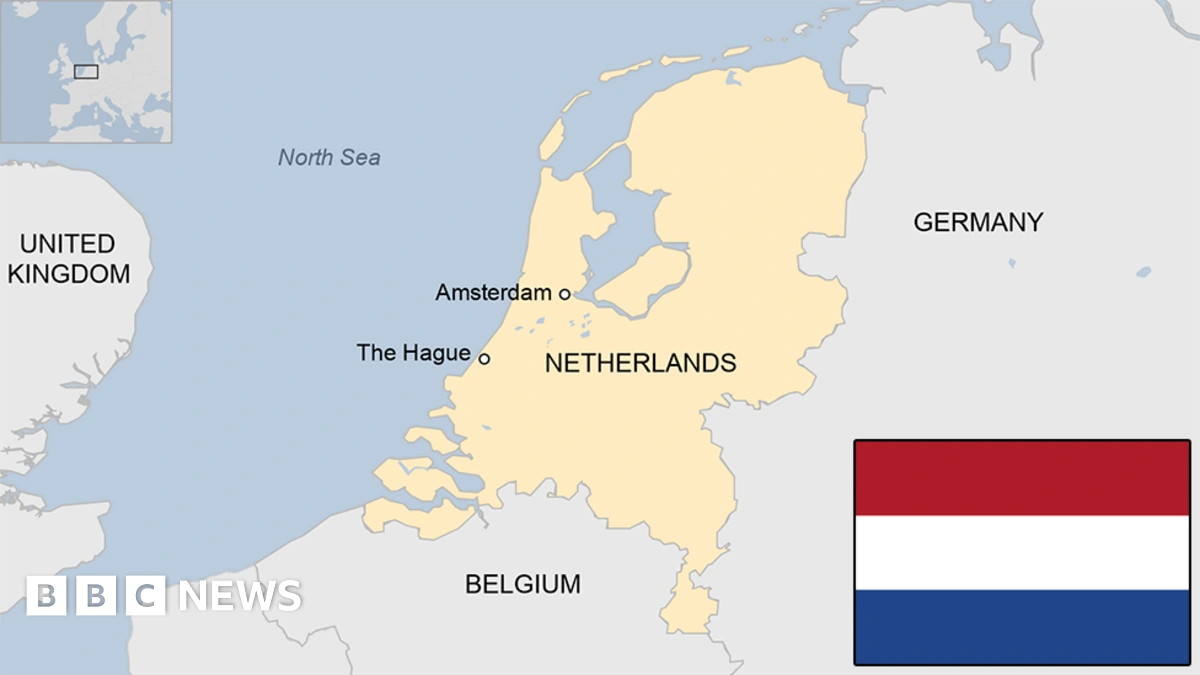Unveiling the Netherlands | More Than Just Tulips and Windmills
The Netherlands. What comes to mind? Probably tulips, windmills, maybe some cheese. But the Netherlands is so much more than its picture-postcard image. It’s a country grappling with a unique set of challenges and opportunities, a place where innovation thrives, and a culture that’s both deeply rooted in history and constantly evolving. What fascinates me is how such a small country punches so far above its weight on the global stage. So, let’s dive deeper, shall we? Prepare to look at the Netherlands with fresh eyes.
The Dutch Model | A Balancing Act

The “Dutch Model” – you’ve probably heard it mentioned in hushed, admiring tones. But what exactly is it? At its core, it’s a delicate balancing act. A fusion of free-market capitalism with a robust social safety net. Think generous unemployment benefits, universal healthcare, and a strong emphasis on education. The Dutch have long embraced a collaborative approach, fostering dialogue between employers, unions, and the government to reach consensus on key economic and social policies. This corporatist approach, where various stakeholders actively participate in decision-making, helps maintain social stability and economic competitiveness. A common mistake I see people make is assuming it’s a purely socialist paradise – it’s not. It’s about finding that sweet spot where economic growth and social well-being go hand-in-hand.
But, and this is a big but, the Dutch model is facing increasing pressure. Globalization, an aging population, and rising immigration are all testing its foundations. Can the Netherlands continue to afford its generous social programs in an increasingly competitive world? That’s the million-euro question. One thing to watch closely is how they adapt their approach to maintain economic competitiveness and social cohesion. The Netherlands has also been a long-time proponent of renewable energy. As per theDutch government’s website, they’ve committed to a 49% reduction in greenhouse gas emissions by 2030, compared to 1990 levels. Achieving this ambitious goal requires substantial investment in renewable energy sources, such as wind and solar power, and a shift away from fossil fuels. For instance, the country is investing heavily in offshore wind farms, which are becoming increasingly important to the Dutch energy mix.
Innovation Nation | Beyond the Canals
Don’t let the picturesque canals fool you; the Netherlands is a hotbed of innovation. From agri-tech (they’re world leaders in sustainable agriculture, believe it or not!) to high-tech manufacturing, the Dutch are constantly pushing boundaries. What’s their secret? A few things. First, a strong emphasis on education and research. The Netherlands boasts world-class universities and research institutions that attract top talent from around the globe. Second, a culture of collaboration and openness. Dutch companies are known for their willingness to partner with startups and other organizations to develop new technologies. Third, a supportive government that actively promotes innovation through funding and regulatory policies. All these factors have turned the Netherlands into a magnet for startups and a hub for technological advancements. If you are looking for the best place to study , you should consider universities in Netherlands.
Here’s the thing: the Dutch government understands that innovation is key to long-term economic growth. That’s why they’ve created a favorable environment for startups and businesses to thrive. Consider the Dutch startup visa, which makes it easier for foreign entrepreneurs to launch their ventures in the Netherlands. Or the various tax incentives and subsidies available to companies investing in research and development. Let me rephrase that for clarity: the Dutch are actively creating the conditions for innovation to flourish. By embracing new ideas and technologies, the Netherlands is positioning itself as a leader in the global economy. By the way, did you know that the Netherlands is the second-most densely populated country in the European Union? Given its size, the country’s effective use of resources and technological advancements truly stands out.
The Expat Experience | A Global Melting Pot
The Netherlands is incredibly diverse. You’ll find people from all corners of the globe. This makes it a uniquely welcoming place for expats. But it also presents challenges. Integrating into Dutch society can be tough, even with the high level of English proficiency. Learning Dutch is crucial for deeper integration, building relationships, and fully participating in the local community. Understanding Dutch culture, which is direct and often perceived as blunt, also takes time and effort. In my opinion, the key to a successful expat experience in the Netherlands is to embrace the local culture, learn the language, and actively seek out opportunities to connect with locals. Don’t just stick to expat circles; venture out and explore the Dutch way of life. Plus, Netherlands has a reputation for having a high quality of life .
And speaking of connecting with locals, be prepared for directness. The Dutch value honesty and transparency, which can sometimes come across as blunt to outsiders. But don’t take it personally; it’s simply part of the culture. What fascinates me is the Dutch approach to work-life balance. They prioritize spending time with family and friends, and they’re not afraid to leave work on time. In fact, it’s considered impolite to stay late at the office. This emphasis on work-life balance contributes to the overall well-being of the Dutch population. Also, Netherlands is known for its cycling culture .
Challenges and Opportunities | Looking Ahead
Let’s be honest, the Netherlands isn’t without its challenges. Climate change, for one, poses a significant threat to this low-lying country. Rising sea levels and more frequent floods require innovative solutions and substantial investment in infrastructure. The housing market is another major concern, especially in major cities like Amsterdam and Utrecht, where prices are soaring. Finding affordable housing is a challenge for many, particularly young people and those with lower incomes. And then there’s the issue of social inequality, which is on the rise. While the Netherlands still boasts a relatively egalitarian society, income disparities are growing. According to studies, Netherlands has a high population density, which presents challenges for urban planning and resource management. But the Dutch are nothing if not resilient. They have a long history of overcoming adversity and finding innovative solutions to complex problems. Their ability to adapt and innovate will be crucial in addressing the challenges they face in the years to come.
However, I initially thought this was straightforward, but then I realized the Netherlands has a unique opportunity to lead the way in sustainable development and circular economy. Their commitment to renewable energy, waste reduction, and innovative technologies positions them as a frontrunner in the transition to a more sustainable future. The Dutch are also well-positioned to capitalize on the growing demand for high-tech solutions and sustainable products. Their strong research institutions, innovative companies, and skilled workforce give them a competitive edge in the global market. The country also enjoys easy access to Europe and has good international relations .
Learn more about European football league here .
FAQ About the Netherlands
What is the capital of the Netherlands?
Amsterdam is the official capital, but The Hague is the seat of government.
Is English widely spoken in the Netherlands?
Yes, most Dutch people speak English fluently.
What are some popular tourist attractions in the Netherlands?
Amsterdam’s canals, the Keukenhof gardens, and the windmills of Kinderdijk are popular sights.
What is the currency used in the Netherlands?
The Euro (€) is the official currency.
What’s the best time to visit the Netherlands?
Spring (April-May) for the tulips, but summer (June-August) offers pleasant weather.
What is the current population?
As of 2024, the population is roughly 17.5 million.
In conclusion, the Netherlands is a fascinating country that defies easy categorization. It’s a place where tradition and innovation coexist, where social welfare and economic competitiveness go hand in hand, and where challenges are met with resilience and ingenuity. It’s a model for other countries to learn from, and a place that’s constantly evolving. So, the next time you think of the Netherlands, remember there’s more to it than meets the eye. Check out more sports news here .













